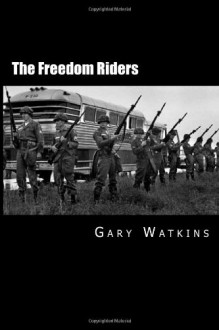Freedom Riders were civil rights activists who rode interstate buses into the segregated southern United States in 1961 and following years to challenge the non-enforcement of the United States Supreme Court decisions Irene Morgan v. Commonwealth of Virginia (1946) and Boynton v. Virginia...
show more
Freedom Riders were civil rights activists who rode interstate buses into the segregated southern United States in 1961 and following years to challenge the non-enforcement of the United States Supreme Court decisions Irene Morgan v. Commonwealth of Virginia (1946) and Boynton v. Virginia (1960),[1] which ruled that segregated public buses were unconstitutional.[2] The Southern states had ignored the rulings and the federal government did nothing to enforce them. The first Freedom Ride left Washington, D.C., on May 4, 1961,[3] and was scheduled to arrive in New Orleans on May 17. Boynton outlawed racial segregation in the restaurants and waiting rooms in terminals serving buses that crossed state lines. Five years prior to the Boynton ruling, the Interstate Commerce Commission (ICC) had issued a ruling in Sarah Keys v. Carolina Coach Company (1955) that had explicitly denounced the Plessy v. Ferguson (1896) doctrine of separate but equal in interstate bus travel. The ICC failed to enforce its ruling, and Jim Crow travel laws remained in force throughout the South. The Freedom Riders challenged this status quo by riding interstate buses in the South in mixed racial groups to challenge local laws or customs that enforced segregation in seating. The Freedom Rides, and the violent reactions they provoked, bolstered the credibility of the American Civil Rights Movement. They called national attention to the disregard for the federal law and the local violence used to enforce segregation in the southern United States. Police arrested riders for trespassing, unlawful assembly, and violating state and local Jim Crow laws, along with other alleged offenses, but they often first let white mobs attack them without intervention. The Congress of Racial Equality (CORE) sponsored most of the subsequent Freedom Rides, but some were also organized by the Student Nonviolent Coordinating Committee (SNCC). The Freedom Rides followed dramatic sit-ins against segregated lunch counters, conducted by students and youth throughout the South, and boycotts of retail establishments that maintained segregated facilities, beginning in 1960.
show less

